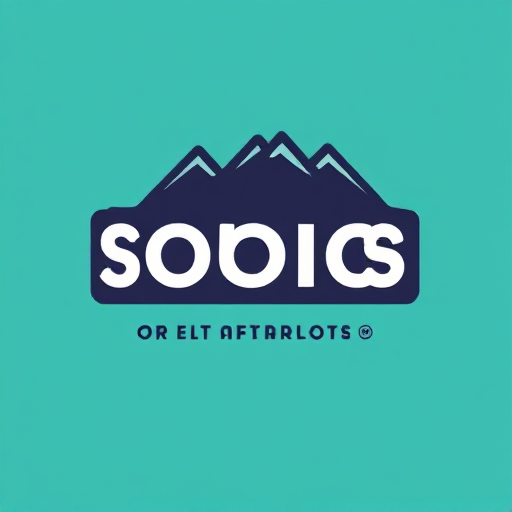Content Writing Or Blog
In the world of digital marketing and online content creation, the terms content writing and blogging are often used interchangeably. However, while they share similarities, they serve different purposes and have distinct characteristics. This comprehensive article delves into the differences between content writing and blogging, highlighting their unique attributes, goals, and use cases.
Find Out How To Make Money As A Full-Time Writer/Blogger Guide.
1. Definition and Purpose
Content Writing
Content writing refers to the process of creating written material for various online platforms, including websites, newsletters, social media, and other digital mediums. The primary goal of content writing is to inform, educate, or entertain the audience while also promoting a brand, product, or service. It can cover a wide range of topics and formats, including how-to guides, product descriptions, eBooks, tutorials, case studies, and more.
Content writing often follows an SEO-driven approach, using keywords and structured formatting to improve search engine visibility and drive traffic to websites. The goal is to create relevant, engaging content that can attract readers, provide valuable information, and help establish authority within a specific niche.
Blogging
A blog is typically a section of a website where regular updates, articles, or entries are posted on specific topics. Blogging started as a personal form of writing, often as a diary or journal, but it has since evolved into a valuable tool for businesses, professionals, and marketers. Blogs can focus on various subjects, including lifestyle, health, business, technology, and more.
Blogging tends to be more conversational and personal in tone, often reflecting the voice of the writer or brand. It’s a way to connect with the audience by sharing experiences, opinions, or insights in a more informal style. Many blogs encourage engagement through comments, allowing readers to interact with the author and each other.
2. Tone and Style
Content Writing
Content writing is often more formal and structured. It is designed to meet specific goals, such as educating the reader or answering a question. Depending on the context, it can also be informative or technical, with the intent of delivering value through detailed information. For example, a company may produce a content piece that explains how their software works or a guide on industry best practices.
Because content writing is usually part of a broader marketing strategy, it needs to align with the brand’s tone and objectives. While some content writing can be light and conversational, especially in certain industries like lifestyle or travel, it generally adheres to a more professional and neutral tone.
Blogging
Blogging, on the other hand, is typically more informal and engaging. A blog post may take on a casual, approachable tone to create a sense of connection with the audience. Bloggers often incorporate storytelling and personal anecdotes to make their posts relatable. This type of writing allows for a greater degree of creativity, where writers can express opinions or subjective thoughts while still providing valuable insights to their readers.
The language used in blogs is often simpler and more accessible, making it easier for readers to engage with the content. This informal style allows bloggers to build a community around their blog, fostering a sense of loyalty and ongoing interaction.
You Can Start A News Blog To Get Fast Grow
3. SEO and Marketing
Content Writing
One of the key aspects of content writing is its focus on Search Engine Optimization (SEO). Writers create content that is optimized for search engines, using specific keywords, meta descriptions, and other SEO techniques to ensure the content ranks well on Google or other search platforms. The aim is to improve the organic visibility of a website and drive traffic through search queries.
Content writers often perform extensive research to create informative, authoritative articles that answer questions their target audience is likely searching for. This content strategy is crucial for businesses that want to position themselves as experts in their field while also attracting potential customers.
Blogging
While blogs can also be SEO-optimized, their approach to SEO is often more subtle. Many blogs focus on providing value and engagement to readers rather than strictly following SEO guidelines. Bloggers may use long-tail keywords and internal linking to improve their SEO efforts, but the primary goal is usually to create meaningful content that resonates with the audience.
That said, some business blogs heavily integrate SEO into their content strategy to ensure their blog posts rank well and attract organic traffic. The difference lies in the execution: blogs may weave keywords into more natural, conversational language, whereas content writing tends to be more deliberate in keyword placement.
Get 20 Blog Post For A Price Of Coffee: Content Is King
4. Length and Frequency
Content Writing
Content writing varies in length depending on the type of content being produced. It could range from short product descriptions or news briefs to long-form content like eBooks and in-depth guides. Longer content tends to perform better in search engines, as it allows for more comprehensive coverage of topics.
In terms of frequency, content writing may be more sporadic, depending on the needs of the business. A company may not need a new eBook every week, but they may require new articles, case studies, or product updates on a regular basis.
Blogging
Blog posts tend to be shorter and more frequent. Depending on the goals of the blog, posts may range from 500 to 2,000 words. However, some blogs, especially those targeting complex subjects or looking to rank for competitive SEO terms, may publish longer posts.
Blogging is often more of a continuous process, with posts going live weekly or even daily. Consistency is a key element of successful blogging, as it keeps the audience engaged and returning for more content. Bloggers often create an editorial calendar to manage their posting schedule and maintain audience interest.
5. Monetization and Professional Use
Content Writing
Content writing is generally a professional service provided to businesses looking to enhance their online presence, improve SEO rankings, or create informative resources for their audience. Companies hire content writers to produce high-quality material that aligns with their brand strategy, often outsourcing it to freelancers or agencies.
Monetization in content writing comes from contracts or projects, where businesses pay content writers for the work they produce. It is a service-based model where payment depends on the quality, length, and complexity of the content.
Blogging
Blogging, while often monetized, operates on a different model. Many bloggers earn money through advertising, affiliate marketing, sponsored posts, and brand partnerships. Successful bloggers can build a loyal audience that allows them to generate revenue from traffic and engagements with their posts.
Some professional bloggers also create membership platforms, offering premium content to subscribers. Blogging can evolve into a full-time career for many, with income streams diversified across various monetization strategies.
6. Creative Freedom
Content Writing
Content writing often requires sticking closely to a brand’s guidelines, tone, and marketing objectives. Writers may have less room for creative freedom, especially when producing content for specific industries like technology, finance, or healthcare. The writing needs to stay professional, accurate, and aligned with business goals, limiting creative expression in some cases.
Blogging
Blogging offers significantly more creative freedom. Bloggers are typically the voice behind their content, which allows them to explore topics in unique ways. They can experiment with different tones, storytelling techniques, and formats, making it a more flexible and personal form of writing.
This flexibility is one reason why blogging has become so popular among individuals and businesses alike. It allows writers to connect with readers in a way that is often more authentic and engaging.
7. Audience Engagement
Content Writing
Content writing is typically created with a broad audience in mind. Businesses often aim to reach a larger demographic, meaning the content needs to be widely applicable and relevant to a large group. The goal is to provide value while subtly promoting a product or service.
While engagement is important, the primary purpose of content writing is often to inform or educate rather than to generate immediate interaction. Readers may not always comment or share content pieces, especially if they are more technical or niche-focused.
Blogging
Blogging is much more focused on building a community and fostering interaction. Bloggers typically create content that sparks conversation, encouraging readers to comment, share, and engage with the content. A successful blog often has a loyal following, with readers returning regularly to check for new posts and share their thoughts.
The conversational tone and personal connection that blogging allows make it an ideal platform for engagement-driven content. Bloggers can develop strong relationships with their readers, which is one of the core reasons why blogging remains a powerful tool for individuals and businesses.
While content writing and blogging share some common elements, they serve different purposes and are executed in unique ways. Both offer valuable tools for businesses, marketers, and individuals looking to build a presence online, but the choice between content writing or blogging ultimately depends on the goals and audience of the content creator.






